What should I do if Win10 is slow to enter the system?
Nowadays, when buying a computer, we all first choose solid-state drives. The biggest advantage of solid-state drives compared to mechanical hard drives is the fast reading and writing speed. Especially when the computer is turned on, it normally takes about 10 seconds for the system to be installed on the solid-state drive to successfully enter the desktop. , and a mechanical hard drive normally takes at least 30-40 seconds to enter the desktop, so if the computer is not equipped with a solid-state drive, it is recommended to install a solid-state drive to obtain the best boot speed, system fluency, and software and game loading speed.
Take the solid-state drive as an example. At first, the computer starts up in about 10 seconds, but after using it for a period of time, the computer starts up slower and slower. I don’t know what the reason is. So how to solve the problem of slow computer startup? Let's share the reasons and solutions for the slow startup speed of Win10 computers.
Cause 1: The software starts automatically at boot
Before solving the problem of automatic startup of the software at boot, we first set the number of processors. First, right-click the "Start" menu and select "Run", as shown in the figure below.
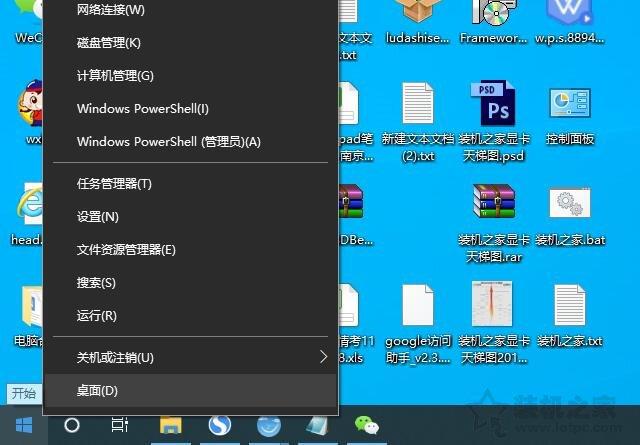
Enter "msconfig" in the running input box to enter the system configuration.
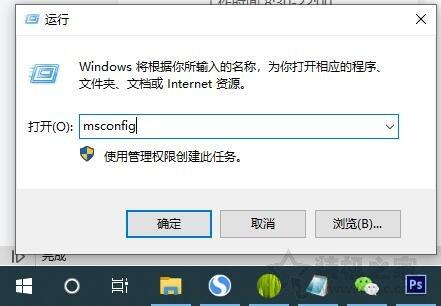
Let’s first click “Advanced Options” in the boot options.
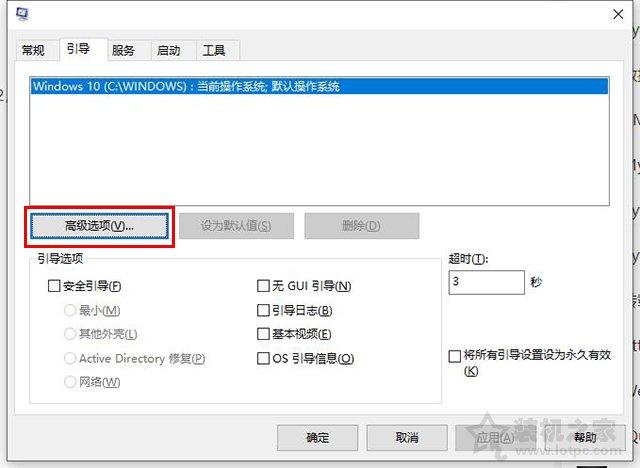
Select the largest number (core) for the number of processors and click OK, as shown in the figure below.
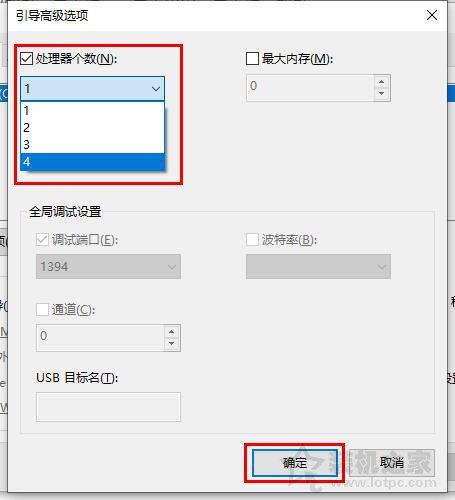
Click Apply again.
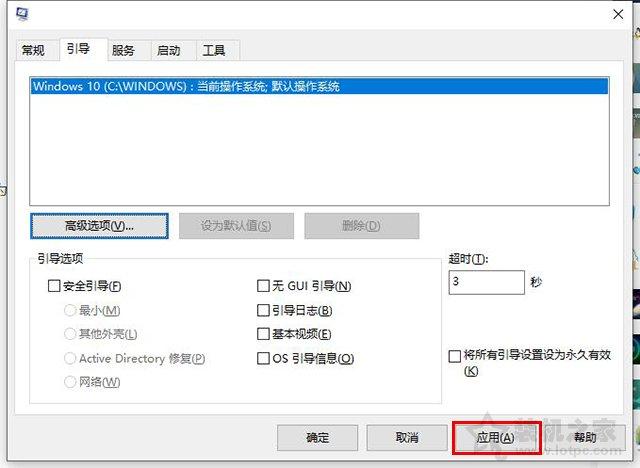
Next, disable the self-starting software at boot. Switch to the "Startup" tab and open Task Manager.
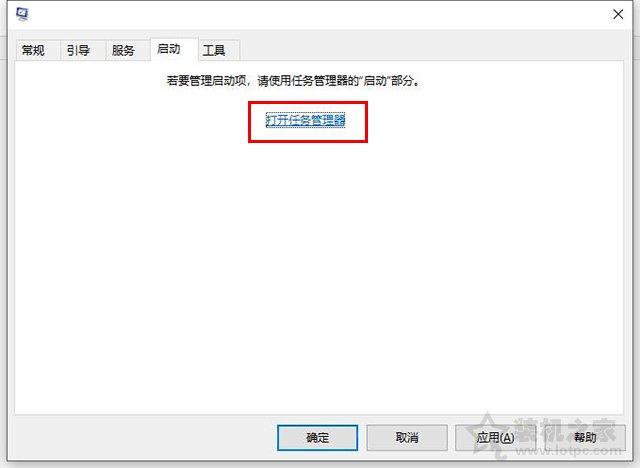
In the Task Manager, click the "Startup" tab, find the installed third-party software, such as Thunder, and click "Disable" to stop it from starting automatically at boot. After disabling all automatic startup software one by one, the status will be displayed as "Disabled".
Note: The Task Manager can also be opened using the Ctrt Alt del key combination.
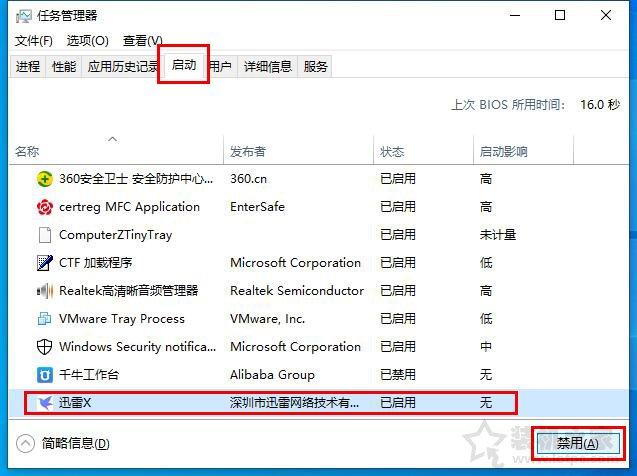
Disable all third-party software in the startup options. These software will not automatically start and open after booting. Let's restart the computer and see if there is a significant change in the boot speed.
2. Turn on Quick Start
First we open the control panel, change the viewing mode to "Large Icons", and click "Power Options", as shown in the figure below.
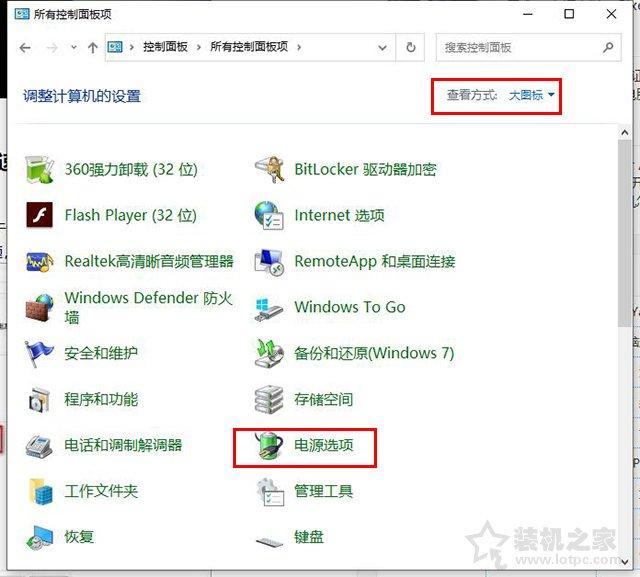
Click "Choose what the power buttons do" as shown below.
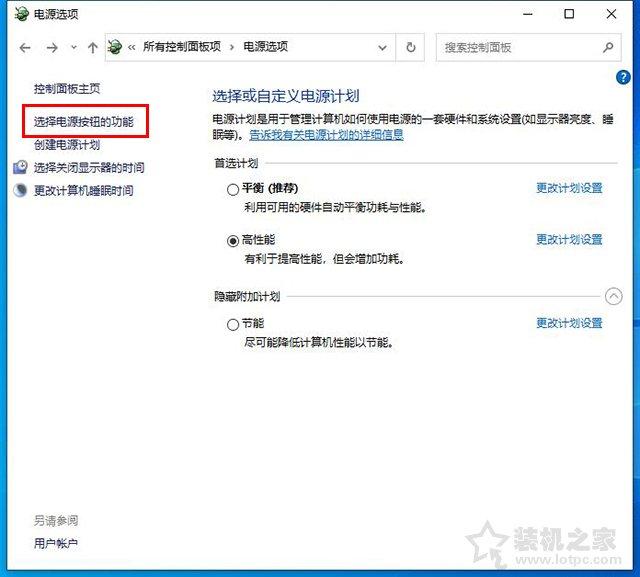
If the shutdown settings cannot be modified, we first click "Change currently unavailable settings", as shown in the figure below.
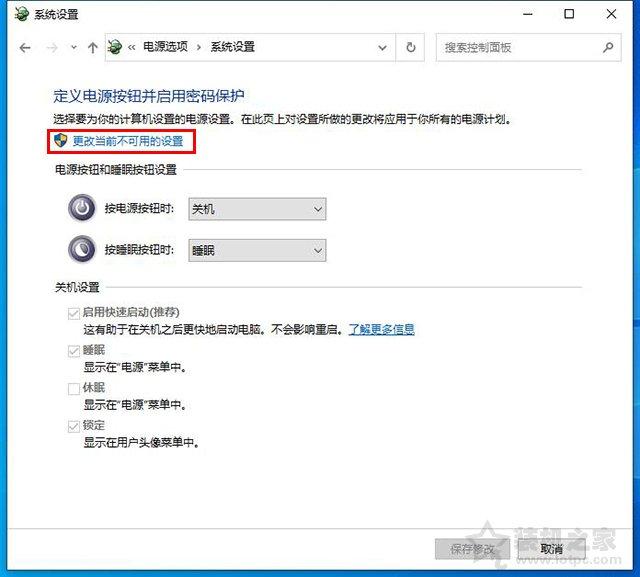
In the shutdown settings, just check the box in front of "Enable fast startup (recommended)". If "Enable fast startup" is checked by default, don't worry about it.
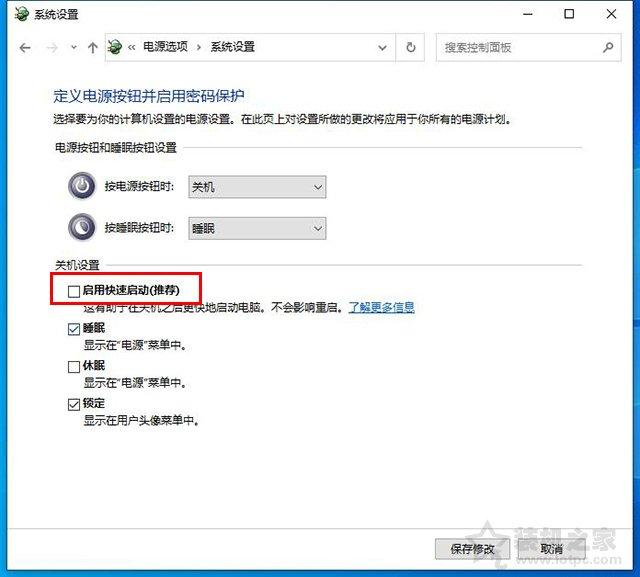
Right-click the "Start" menu, click Run, enter the "gpedit.msc" command during run, and click OK.
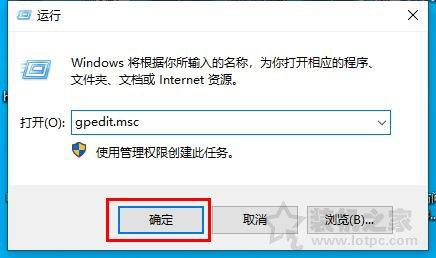
In the "Computer Configuration" on the left, click "Administrative Templates" - "System" - "Shutdown", find "Require to use Fast Startup" in the right window and double-click to enter.
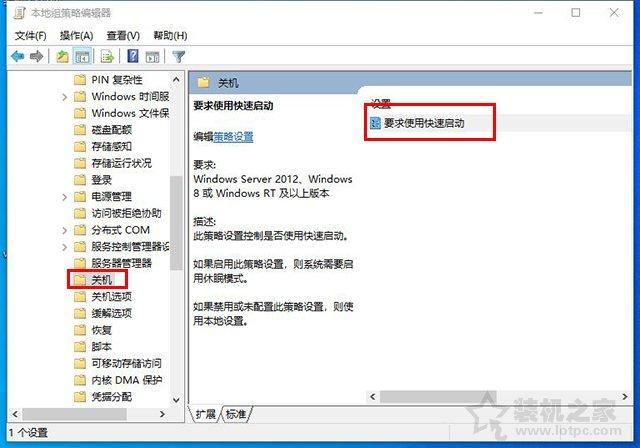
You will be asked to use Quick Start. Select "Enabled" and click OK to close.
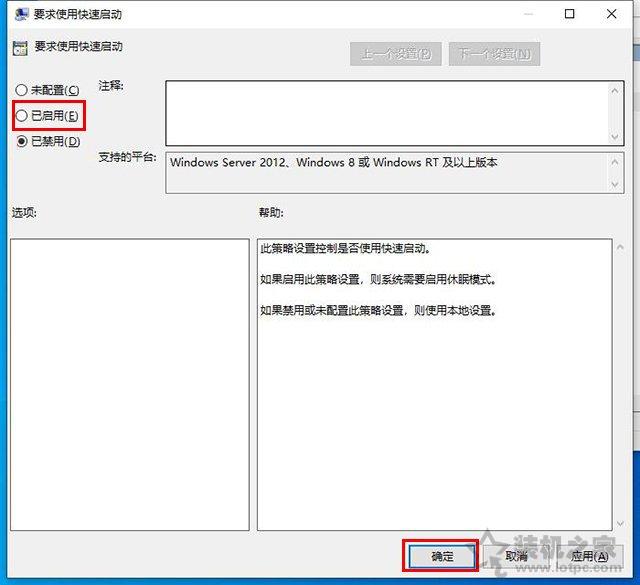
Restart the computer and test.
3. Whether multiple anti-virus software are installed
Slow startup may also be caused by the installation of multiple anti-virus software or its components, and the accompanying startup slows down the speed. We have seen a 360 anti-virus software, 360 Security 1 Guard, Kingsoft anti-virus software, Baidu anti-virus software, etc. are installed on each computer. It is enough to keep one of them, and uninstall all the excess. There are also software like Master Lu. After using it, Basically, you will never use it again, so it is recommended to uninstall this type of software.
4. Slow boot speed caused by graphics card driver
You may not believe it, but the graphics card driver can cause the boot speed to be slow. It does happen, from personal experience! I was stupid and updated the graphics card driver, which caused the computer to turn on with a black screen and the boot speed became much slower. I uninstalled the graphics card and reinstalled the graphics card driver.
Uninstalling the driver of the independent graphics card is very simple. Right-click "This PC" and click "Manage", as shown in the figure below.
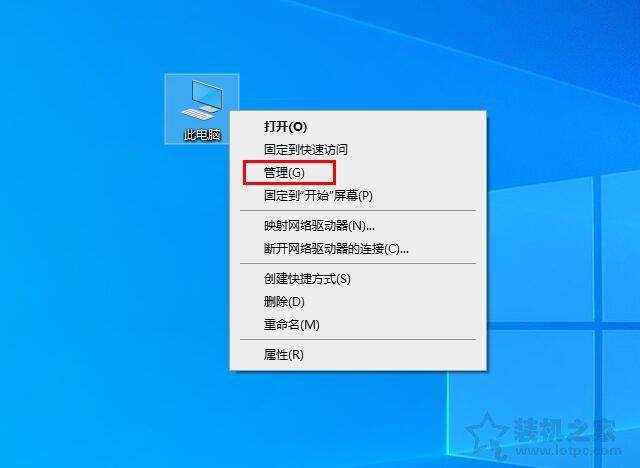
In the computer management interface, we click "Device Manager", expand "Display Adapters", find the independent graphics card device, we right-click and select "Uninstall Device", (if you have an independent graphics card and Integrated graphics card, if you can't tell which one is the independent graphics card or the integrated graphics card, you can uninstall them both and reinstall them.) As shown in the figure below.
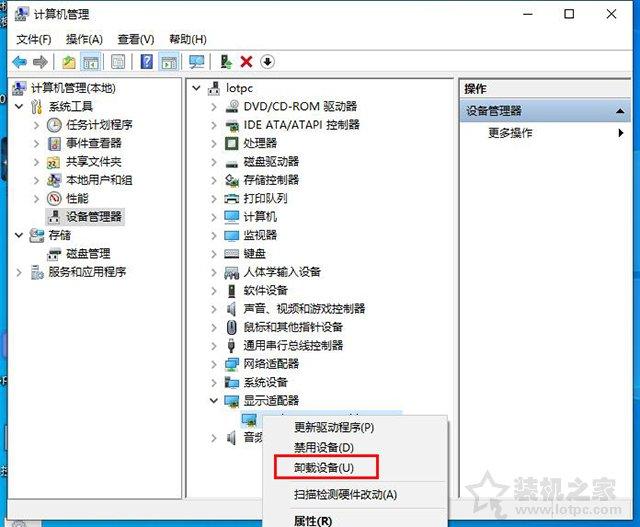
Check "Delete the driver software for this device" and click "Uninstall" to uninstall the independent graphics card driver, as shown in the figure below.
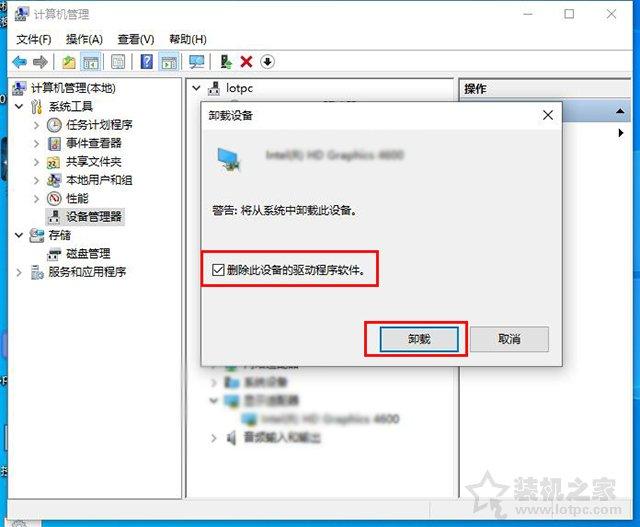
Go to the official website to download the corresponding graphics card driver and reinstall it, or use driver installation software such as Driver Wizard, Driver Life, or Master Lu to reinstall the graphics card driver. If you installed it before For the latest version of the graphics card driver, you can try installing the older version.
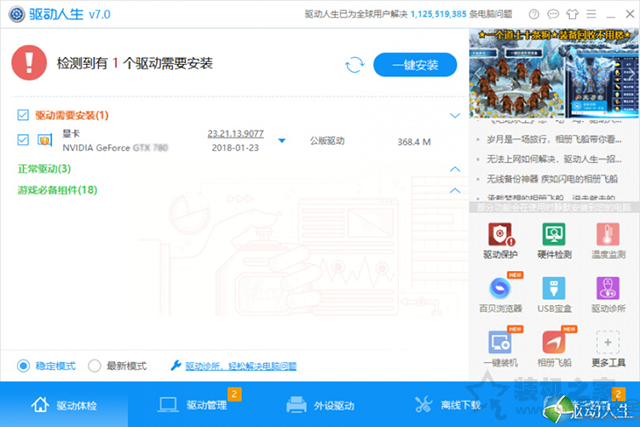
It is recommended that you do not update the system and drivers randomly. Sometimes new system patches or drivers may have bugs or compatibility issues. It is best to turn off Windows updates and disable the Windows update service.
5. Defragment the disk and use 360 and the like to clean up junk
We click "This Computer", in this computer, right-click "Local Disk C", which is the system drive letter, and select "Properties" as shown below.
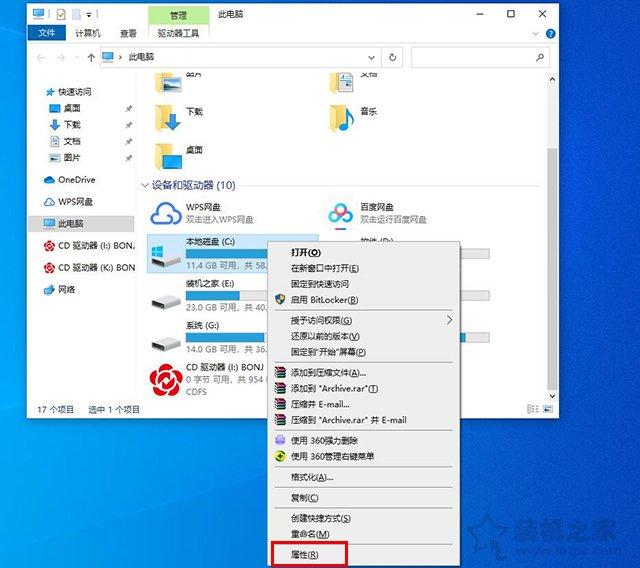
Click "Disk Cleanup"
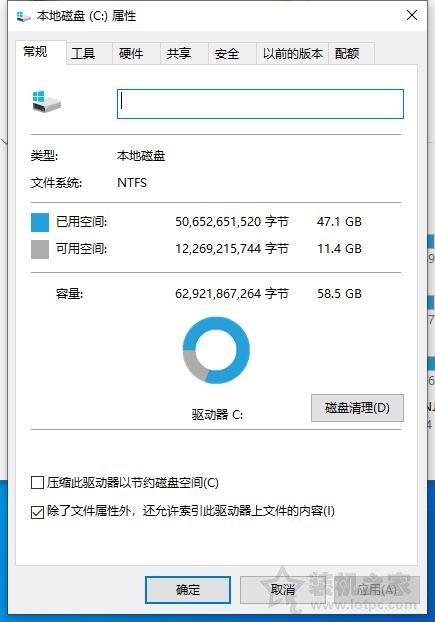
Check all the files to be deleted and click OK.
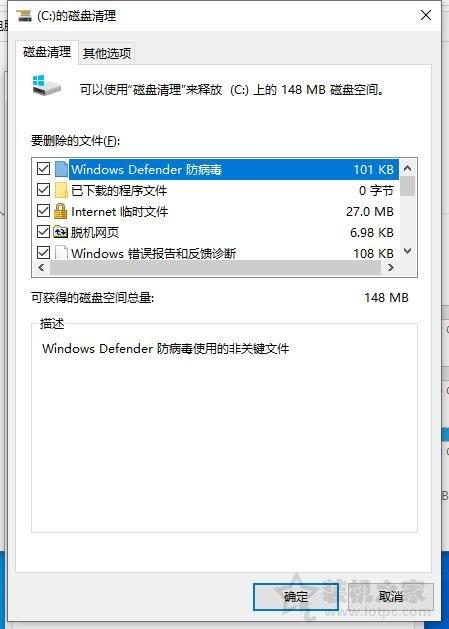
Wait for the cleanup to be completed.
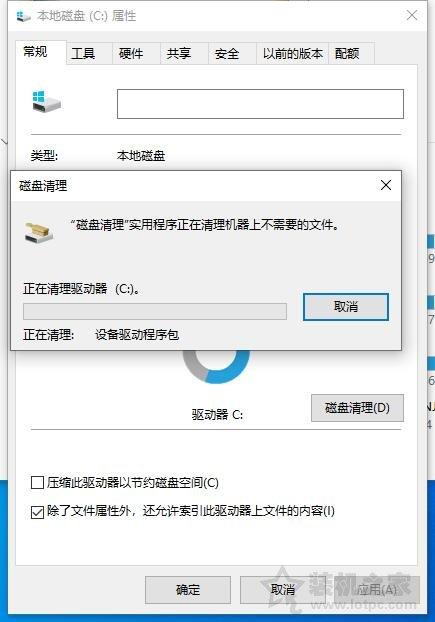
It is recommended to frequently use software such as 360 to clear cache and junk files.
6. The mechanical hard disk has bad sectors or the solid state causes slow booting speed
Whether the mechanical hard disk is used as the main disk or the secondary disk, if the mechanical hard disk has bad sectors, the computer startup speed will be slowed down Regarding the slowness issue, if the mechanical hard drive is a secondary drive and not the main drive, you can try unplugging the mechanical hard drive and leaving only the solid-state drive to see if the computer boots up faster. It is not ruled out that there is a problem with the solid state, causing the slow boot speed.
7. Further optimize the boot speed
1. It is recommended that the solid state drive be aligned with 4K.
2. uefi starts the gpt partition table to install the Win10 operating system.
The above is the detailed content of What should I do if Win10 is slow to enter the system?. For more information, please follow other related articles on the PHP Chinese website!

Hot AI Tools

Undresser.AI Undress
AI-powered app for creating realistic nude photos

AI Clothes Remover
Online AI tool for removing clothes from photos.

Undress AI Tool
Undress images for free

Clothoff.io
AI clothes remover

AI Hentai Generator
Generate AI Hentai for free.

Hot Article

Hot Tools

Notepad++7.3.1
Easy-to-use and free code editor

SublimeText3 Chinese version
Chinese version, very easy to use

Zend Studio 13.0.1
Powerful PHP integrated development environment

Dreamweaver CS6
Visual web development tools

SublimeText3 Mac version
God-level code editing software (SublimeText3)

Hot Topics
 System Restore prompts that you must enable system protection on this drive
Jun 19, 2024 pm 12:23 PM
System Restore prompts that you must enable system protection on this drive
Jun 19, 2024 pm 12:23 PM
The computer has a restore point, and when the system is restored, it prompts "You must enable system protection on this drive." This usually means that the system protection function is not turned on. System protection is a feature provided by the Windows operating system that can create system restore points to back up system files and settings. That way, if something goes wrong, you can revert to a previous state. When the system fails and you cannot enter the desktop to start it, you can only try the following method: Troubleshooting-Advanced Options-Command Prompt Command 1 netstartvssrstrui.exe/offline:C:\windows=active Command 2 cd%windir%\system32 \configrenSYSTEMsy
 What should I do if win10 does not switch users? Win10 login interface does not have the option to switch users. Solution
Jun 25, 2024 pm 05:21 PM
What should I do if win10 does not switch users? Win10 login interface does not have the option to switch users. Solution
Jun 25, 2024 pm 05:21 PM
A problem that Windows 10 users may encounter is that they cannot find the switch user option on the login interface. So what should I do if there is no switch user option on the win10 login interface? Let this site give users a detailed explanation of the problem of not switching user options in the win10 login interface. Detailed solution to the problem of switching user options on the Win10 login interface: Check user account settings: First, make sure you have multiple user accounts on your computer and that these accounts are enabled. You can check and enable the account by following these steps: a. Press Win+I keys to open Settings and select "Accounts". b. Select "Family & Others" or &ld in the left navigation bar
 How to permanently turn off real-time protection in win10? How to disable real-time protection function in win10 computer 0
Jun 05, 2024 pm 09:46 PM
How to permanently turn off real-time protection in win10? How to disable real-time protection function in win10 computer 0
Jun 05, 2024 pm 09:46 PM
Although the comprehensive anti-virus software that comes with Windows 10 system can continuously protect the security of your personal computer, sometimes it may also affect certain downloaded files. For some users, it may be more appropriate to temporarily turn off the real-time protection function. But many users don’t know how to permanently turn off the real-time protection feature on win10 system. 1. First, press the "Win+R" keys to open the run window, enter the "gpedit.msc" command to open the local Group Policy Editor interface; 2. Then, in the opened interface, click "Computer Configuration/Administrative Templates/ Windows Components/MicrosoftDef
 How to restore the default wallpaper in win10? One trick to quickly restore the default wallpaper in Windows 10 system
Jun 02, 2024 pm 02:07 PM
How to restore the default wallpaper in win10? One trick to quickly restore the default wallpaper in Windows 10 system
Jun 02, 2024 pm 02:07 PM
In Windows 10 system, if you want to return to the system default wallpaper, you can follow the following steps: 1. Right-click a blank space on the desktop and select Personalize in the pop-up menu. 2. This will open the Personalization window in Settings. In the left menu, click Background. 3. Under the "Background" settings, find and click the drop-down menu next to "Choosepicture", and then select Windows Default (Windows Default) or directly select a picture that looks like the default wallpaper in the picture preview below ( if there are multiple options). 4. If your system has multiple versions
 What should I do if Win10 takes a screenshot and crashes? How to solve the problem of Win10 flashing and then disappearing after taking a screenshot?
Jun 02, 2024 pm 12:48 PM
What should I do if Win10 takes a screenshot and crashes? How to solve the problem of Win10 flashing and then disappearing after taking a screenshot?
Jun 02, 2024 pm 12:48 PM
There are many reasons why the screenshot disappears after taking a screenshot in Win10. Users can first check the screenshot save location or adjust the screenshot settings, or check the animation effect to check it. If it really doesn't work, you can also choose to update the driver and operating system to perform the operation. Let this website carefully introduce to users the analysis of the problem of Win10 disappearing after taking a screenshot. Analysis of the problem after win10 takes a picture and it flashes and disappears 1. Check where the screenshot is saved: When you use the Win+PrtSc (PrintScreen) key combination to take a screenshot, the screenshot is usually saved in the C:\Users\YourUsername\Pictures\Screenshots folder. please
 Windows cannot start the Windows Audio service Error 0x80070005
Jun 19, 2024 pm 01:08 PM
Windows cannot start the Windows Audio service Error 0x80070005
Jun 19, 2024 pm 01:08 PM
The guy's computer appears: Windows cannot start the WindowsAudio service (located on the local computer). Error 0x8007005: Access denied. This situation is usually caused by user permissions. You can try the following methods to fix it. Method 1: Modify the registry to add permissions through batch processing, create a new text document on the desktop, save it as .bat, and right-click the administrator to go far. Echo==========================EchoProcessingRegistryPermission.Pleasewait...Echo================== ========subinacl/subkey
 What to do if the Win10 Task Manager crashes? How to fix the Win10 Task Manager crash?
Jun 25, 2024 pm 04:31 PM
What to do if the Win10 Task Manager crashes? How to fix the Win10 Task Manager crash?
Jun 25, 2024 pm 04:31 PM
Hello everyone, have you ever encountered the situation where the Windows 10 Task Manager keeps crashing? This function helps us a lot, allowing us to quickly see all running tasks, which is very convenient to use, right? However, some friends said that they encountered this problem and didn’t know how to solve it, so let me share with you the specific solution! Solution to Win10 Task Manager crash 1. First, press and hold the "Win" + "R" keys on the keyboard to open Run, enter "regedit" and press the Enter key. 2. Expand the folders and find "HKEY_CURRENT_USERSoftwareMicros
 What should I do if there are no pop-up reminders for calendar events in Win10? How to recover if calendar event reminders are gone in Win10
Jun 09, 2024 pm 02:52 PM
What should I do if there are no pop-up reminders for calendar events in Win10? How to recover if calendar event reminders are gone in Win10
Jun 09, 2024 pm 02:52 PM
The calendar can help users record your schedule and even set reminders. However, many users are asking what to do if calendar event reminders do not pop up in Windows 10? Users can first check the Windows update status or clear the Windows App Store cache to perform the operation. Let this site carefully introduce to users the analysis of the problem of Win10 calendar event reminder not popping up. To add calendar events, click the "Calendar" program in the system menu. Click the left mouse button on a date in the calendar. Enter the event name and reminder time in the editing window, and click the "Save" button to add the event. Solving the problem of win10 calendar event reminder not popping up






